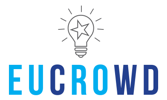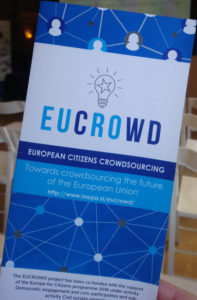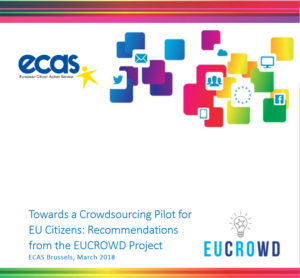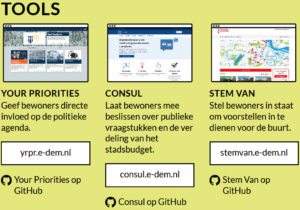The EUCROWD project consortium is pleased to announce that the final report and information on implemented activities are now available.
The comprehensive list of results of the EUCROWD project is available here.
We would like to cordially thank to all 437 participants from 22 EU members states and 14 non-EU members states (including 185 young people) for taking their time to directly participate in the project and for contributing their expectations, opinions and ideas on using crowdsourcing in debating the future of Europe.
Continue reading “EUCROWD project final report and information template”



